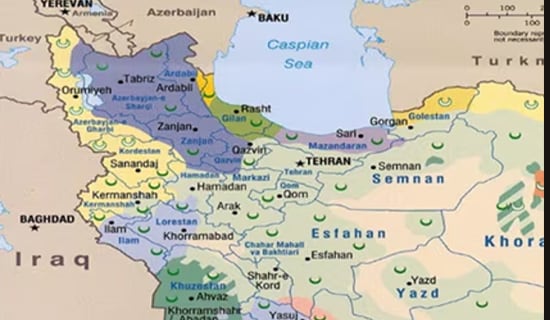Introduction
In recent years, and especially since the 2005 assassination of former Lebanese prime minister Rafiq Al-Hariri, Syria-Egypt relations have been very tense, owing to essential disagreements on the issues of Palestine, Lebanon, and Iran – to the point of a 'cold war' between the two countries. Even today, when Saudi Arabia and Jordan, Egypt's allies in the moderate camp, have drawn closer to Syria, Egypt has not changed its positions, and along with Iraq it continues to constitute an opposition to Syria within the Arab world. In fact, in the past year, it has acted as the main buffer thwarting Syria's efforts to draw close to the Arab countries and to form with them a solid front based on the approach of resistance to Israel and the U.S., which Syria is championing.
The tension between Syria and Egypt is evident in the statement of Syrian President Bashar Al-Assad that "anyone who is party to the siege on Gaza is responsible for [spilling] Palestinian blood."[1] Another reflection of it is the failure of the Saudi efforts to arrange a meeting between President Assad and Egyptian President Hosni Mubarak, as recently revealed by Saudi Foreign Minister Sa'ud Al-Faisal.[2]
In addition, the last two months have seen numerous articles in the Syrian daily Al-Watan that lambasted the Egyptian regime and featured personal attacks on President Mubarak. Most of the criticism pertained to Egypt's policy vis-à-vis Gaza, Israel, and the Palestinian reconciliation efforts. The main thrust of the articles was that the Egyptian regime is acting contrary to the will of the Egyptian people and of the other Arab countries, and has therefore lost its right to rule Egypt and play a leading role in the region.
Presumably, it is no coincidence that these attacks were published in the daily Al-Watan, which is close to the Syrian regime but is not a government daily. By using it, the Syrian regime can criticize Egypt while maintaining the appearance that the criticism does not reflect the official Syrian stance – thereby possibly avoiding an escalation in the tension between the two countries.
The proliferation of anti-Egyptian articles in the Syrian press in the last two months – and the increase in their virulence – can be attributed to Syria's desire to position itself as the leader of the Arab world and as the shaper of its agenda, especially in the lead-up to the Arab summit at the end of March. Possibly, it perceives that with Jordan and Saudi Arabia drawing close to the Syrian camp, Egypt is now weaker and more vulnerable to attack.
It should be noted that, so far, the Egyptian press has not responded to the criticism; it seems that Egypt prefers to keep silent, at least for now.
Following are excerpts from the Al-Watan articles:
Egypt Has Lost Its Status in Arab World
Al-Watan editor Waddah 'Abd Rabbo criticized Egypt implicitly by leveling harsh criticism at "a few Arab countries... that prefer to deal directly with Israel, which they regard as a strategic ally, and with the U.S., which they befriend [in return for] a handful of dollars." These countries, he added, are hindering Syria's efforts to form a unified Arab position; however, "they no longer carry any weight in the Arab arena, and have lost their credibility in the eyes of the Arab peoples, so they do not pose any threat to joint Arab action..."[3]
Unlike 'Abd Rabbo, who refrained from mentioning Egypt by name, Al-Watan columnist Nizar Saloum criticized it explicitly. He said that, though in the 1980s and 1990s Egypt had "played a certain role in the Arab region," today "there are many questions regarding its position, future, status and role – and it seems that Egypt's answer to these questions is based on its delusional notion that its role [in the region] is inevitable and preordained, and that others must court it instead of the other way around, though [this notion] is far removed from reality..."[4]
Egypt Exonerates Israeli Leaders of Their Crimes by Hosting Them in Sharm Al-Sheikh
The writers argued that Egypt has lost its right to lead the Arab world because it has tied its destiny to that of Israel and the U.S., preferring them to its natural Arab environment. Columnist Salwa Zahr wrote that the door of Egyptian President Hosni Mubarak is always open to Israeli leaders, while Arab leaders have to wait a long time for a meeting with him. Mubarak, she said, "does not hesitate to meet with the Israeli prime minister in order to discuss a [notion of] 'peace' that was designed by the Israelis and cooked up in their kitchen, while the Arab world – which still retains some trace of pan-Arabism and Arab [identity], and [still] feels some solidarity with Arab brothers – is lamenting the situation of the Palestinians and trying to find some way to deter Israel, or at least to minimize its violence and lack of consideration towards the Palestinians... For many years, Sharm Al-Sheikh has been a peaceful resort for Israeli prime ministers [who came to rest there] after [acting against] the Palestinians and taking harsh decisions that may yet bring new disasters [upon them]. These frequent visits to Sharm Al-Sheikh are like a 'certificate of good character' granted to the Israeli prime ministers by the greatest Arab country, as many like to call it."
Wondering why Mubarak agrees to negotiate with "the greatest enemy of peace" (i.e., Israel), Zahr asked: "Does he not understand that everything that has been said about Egypt's withdrawal from the Arab camp is true? Does he not understand that he is fulfilling to the letter all the goals of Israel's peace agreement with Egypt? He seems to display more compassion for the captive Israeli soldier than for the hundreds [of Palestinians] that are killed every day by the Israeli war machine, [and he seems to be doing this] just so that Israel will remain pleased with him and refrain from inciting the U.S. against him... Can the Egyptian president regard Sinai as liberated territory when Israeli prime ministers come to Sharm Al-Sheikh every other day to negotiate 'peace,' and at the same time perpetrate crimes and massacres against the Palestinians?"[5]
The Steel Barrier Is Worse than the Sykes-Picot Agreement
In addition to condemning the meetings with Israeli leaders, the Al-Watan articles also condemned Egypt for constructing the steel barrier along its border with Gaza. This move, they argued, reflects Mubarak's alliances, and shows that Egypt has become a contractor working for Israel and the U.S. and justifying their policies. One of the articles stated, "...The purpose of the [steel] barrier is not just to tighten the Israeli siege on Gaza, but to justify the fence that Israel has built around the Palestinian territories, which has been condemned by the international community and by human rights organizations, and is called the 'racist separation fence.'"
Al-Watan also quoted analysts as saying that "Cairo built the steel barrier according to instructions from Washington and Tel-Aviv, who want to justify Israel's separation fence by means of an Arab fence and to exonerate Israel of building a 'racist fence'..."[6]
Salwa Zahr added that "the culture of fence[-building] has spread to many Arab countries. Some [countries] with a vacillating policy regard the construction of a fence on their border with another country as an easy solution to [security] problems... and fail to understand that [such fences] create new borders, even uglier than the borders delineated by the Sykes-Picot agreement..."[7]
The Steel Barrier – A Knife in the Arabs' Back

Al-Watan (Syria), January 31, 2010
Cartoonist: Fares Qarabeat
Egypt Violates Every Arab Norm of Behavior
The Al-Watan articles mentioned the Artery of Life 3 aid convoy to Gaza (also called the Viva Palestina 3 convoy), headed by British MP George Galloway, whose passage was hindered by the Egyptian authorities.[8]
Columnist Osama Al-Sabbagh wrote that Egypt's treatment of the convoy contravened every Arab norm of behavior: "The shameful behavior of the Al-Arish and Rafah police... towards Galloway and his colleagues was a complete disgrace!! Is it an Arab trait to harm someone who comes from thousands of miles away to help the Arabs... and to feed the hungry? Does the disgraceful treatment that Galloway and the other members of the Artery of Life 3 convoy receive in Al-Arish, in the Arab country of Egypt, enhance our Arab pride?... Is [it a reflection] of Arab wisdom?..."[9]
Egypt Failed to Mediate a Fatah-Hamas Reconciliation
Another fact brought as evidence of Egypt's declining status is its failure to bring about a reconciliation between Fatah and Hamas. Columnist Nizar Saloum called to transfer the role of mediator to someone else.[10] Another article stated that Egypt's failure stems from its refusal to involve others in the mediation efforts, out of fear of losing its status and prestige. An article on the reconciliation process stated, citing "political analysts," that Saudi Arabia had presented Egypt with ideas for advancing the talks, but Cairo did not act upon them because "it does not want the reconciliation to be presented as a Saudi achievement. It wants to 'develop the ideas,' 'examine them' and play for time before responding to the Saudi proposals. It wants to discuss 'the best way out [of the crisis],' in order to save face and create an impression that it is the one [achieving] reconciliation. [But the fact is that Egypt] promised to achieve [a reconciliation agreement] months ago, but failed because of its bias towards one of the sides [i.e., Fatah]."[11]
In addition to tarnishing Egypt's image, there seems to be an effort to harm its relations with Saudi Arabia. Al-Watan stated that, when Saudi Arabia made its proposals regarding the reconciliation talks, Egyptian sources leaked that these proposals pertained to security arrangements between Hamas and Fatah in Gaza. The paper claimed, citing other sources, that these Egyptian leaks were a deliberate distortion of the Saudi proposals, aimed at presenting them as interference in the Palestinians' affairs and thereby sabotaging Saudi Arabia's mediation efforts.[12]
The Policies of the Egyptian Regime Do Not Reflect the Will of the People
To undermine the legitimacy of the Egyptian regime, the articles drew a distinction between the Egyptians, who are a "great Arab nation," and their regime, which does not represent their will. For example, it was claimed that the Egyptian people oppose the construction of the steel barrier, "which causes every Egyptian to feel shame and disgrace." It was also claimed that, "even today, many years after the [Egypt-Israel] peace process, the Egyptian street still rejects the way in which Sadat's Egypt achieved peace with Israel. This process was like an earthquake in the history of the Egyptian people – and now another earthquake is brewing as the steel barrier becomes a reality..."[13]
Regarding Galloway's convoy, it was claimed that the Egyptian people had not been party to the humiliating treatment meted out to Galloway and his friends, and that given the option, they would have welcomed the convoy with honor and respect.[14]
Syria – The Pan-Arab Alternative
The Al-Watan articles presented Syria as the antithesis to Egypt. With regards to the inter-Palestinian reconciliation, they argued that unlike Egypt, which is interested only in its image as a successful mediator, Syria supports any effort, by anyone, that can lead to results. Quoting President Assad's political advisor, Buthaina Sha'ban, the paper stated that Syria supports "every effort [in this direction], and is willing to assist every party that wants or is able to achieve a reconciliation, and is not seeking any role [for itself]."[15]
* N. Mozes is a research fellow at MEMRI.
Endnotes:
[1] Al-Thawra (Syria), December 24, 2009.
[2] Al-Quds Al-Arabi (London), February 4, 2010.
[3] Al-Watan (Syria), January 31, 2010.
[4] Al-Watan (Syria), January 21, 2010.
[5] Al-Watan (Syria), February 2, 2010.
[6] Al-Watan (Syria), January 3, 2010.
[7] Al-Watan (Syria), January 27, 2010.
[8] See MEMRI Special Dispatch No. 2756, "Reactions in the Arab Press to British MP George Galloway's Viva Palestina 3 Aid Convoy," January 19, 2010, Reactions in the Arab Press to British MP George Galloway's Viva Palestina 3 Aid Convoy.
[9] Al-Watan (Syria), January 12, 2010.
[10] Al-Watan (Syria), January 21, 2010.
[11] Al-Watan (Syria), January 18, 2010.
[12] Al-Watan (Syria), January 18, 2010.
[13] Al-Watan (Syria), January 27, 2010.
[14] Al-Watan (Syria), January 12, 2010.
[15] Al-Watan (Syria), January 18, 2010.








